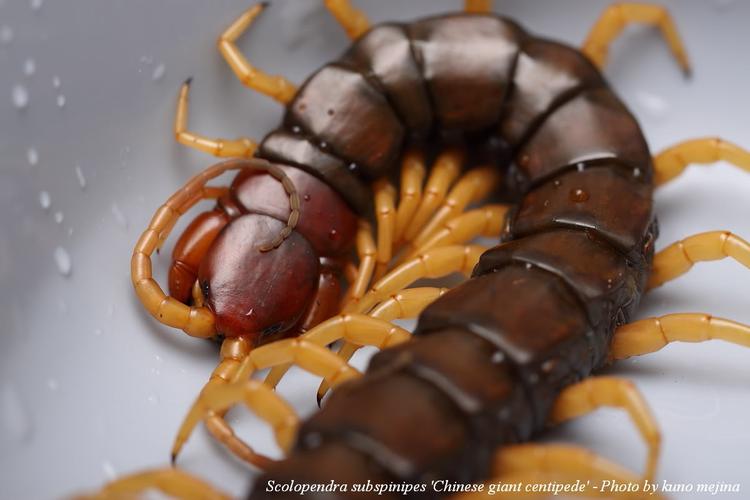
Bite by Centipede: A Detailed Look into the World of Centipede Bites
Centipedes, those elongated, many-legged creatures, might not be the most popular insects, but their bites can certainly leave a lasting impression. Have you ever wondered what happens when a centipede bites? Let’s delve into the details of centipede bites, exploring their effects, treatment, and prevention.
Understanding Centipede Bites
Centipedes are known for their venomous bites. While most centipedes are not aggressive, they can bite when threatened or cornered. The venom they inject into their prey can cause a range of symptoms, depending on the species and the individual’s sensitivity.

Centipede venom typically contains enzymes, neurotransmitters, and other substances that can cause pain, swelling, and inflammation. In some cases, the venom can also lead to more serious symptoms, such as muscle spasms, difficulty breathing, and even anaphylactic shock.
Effects of Centipede Bites
The effects of a centipede bite can vary widely. Here’s a breakdown of the common symptoms:
| Immediate Symptoms | Delayed Symptoms |
|---|---|
| Pain and swelling at the bite site | Redness and warmth around the bite area |
| Itching and burning sensation | Difficulty breathing (in severe cases) |
| Muscle spasms | Loss of consciousness (in severe cases) |
It’s important to note that while most centipede bites are not life-threatening, some individuals may be more sensitive to the venom, leading to more severe symptoms. Children, the elderly, and individuals with allergies or compromised immune systems are at a higher risk.
Treatment for Centipede Bites
Here’s what you can do to treat a centipede bite:
-
Wash the bite area with soap and water to prevent infection.
-
Apply a cold compress to reduce swelling and pain.
-
Take over-the-counter pain relievers, such as ibuprofen or acetaminophen, to manage pain and inflammation.
-
Seek medical attention if symptoms worsen or if you experience difficulty breathing, severe swelling, or other serious symptoms.
In some cases, your doctor may prescribe antibiotics to prevent infection or antivenom to counteract the venom’s effects. However, antivenom is not widely available and is typically used only in severe cases.
Preventing Centipede Bites
Preventing centipede bites involves minimizing their presence in your home and yard. Here are some tips:
-
Keep your home clean and clutter-free, as centipedes prefer dark, damp environments.
-
Seal any cracks or gaps in your home’s foundation and exterior walls to prevent centipedes from entering.
-
Remove any piles of leaves, wood, or other debris from your yard, as these can serve as habitats for centipedes.
-
Keep your yard well-maintained, as overgrown vegetation can attract centipedes.
-
Use insecticides or natural repellents to deter centipedes from your property.
By understanding the risks and taking appropriate precautions, you can minimize your chances of encountering a centipede bite. Remember, while most centipede bites are not severe, it’s always better to be safe than sorry.







